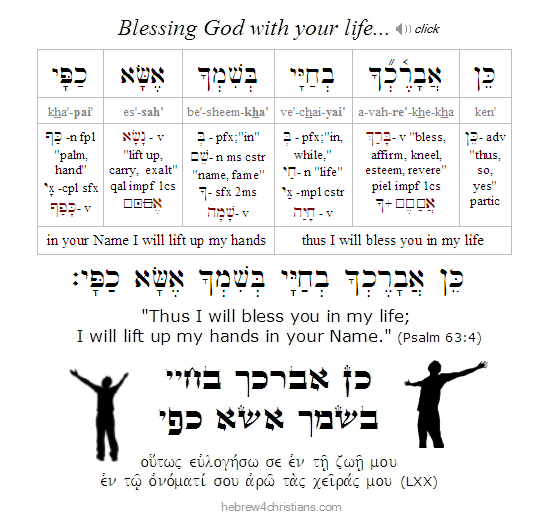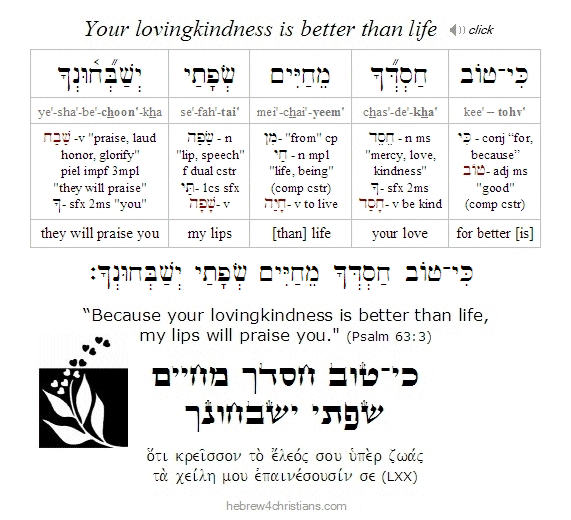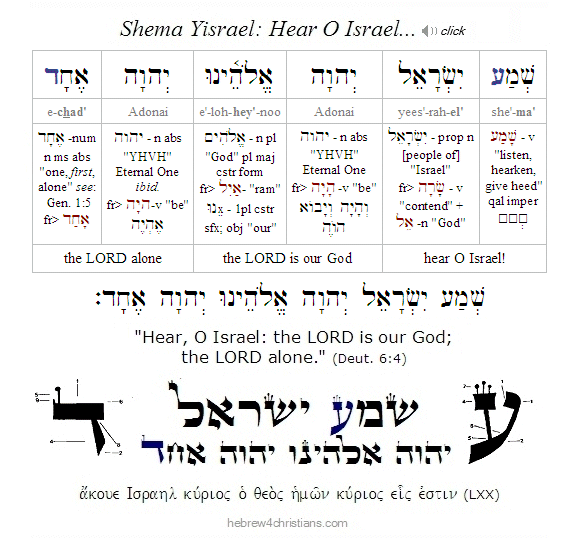|
There may come a severe test of your faith, when it would be better to give up your life than to deny God's will, since God's truth is so valuable that to repudiate it would be worse than death itself... A verse from our Torah portion reads: "You shall not profane my holy name, that I may be made sacred among the people of Israel" (Lev. 22:32), which the early sages said provides the basis for "kiddush HaShem" (קידוש השם), a phrase that means honoring God's truth even if that might require giving up your life to do so. On the other hand, denying God's truth or blasphemy is called "chillul HaShem" [חילול השם] a phrase that means disregarding God's authority over our lives.
Sanctifying God's name means we regard our relationship to God to be an end in itself - our ultimate concern - and there is therefore nothing higher that may challenge our duty before heaven. "Seek first the kingdom of God and his righteousness" (Matt. 6:33). Indeed our mortal life in this fleeting world is a means to the end of reaching our eternal destiny, and esteeming the means above the end is therefore idolatry. In other words, we exist only because of God, and when we live according to God's truth, we take a firm stand against corrupt culture by denying its its godless ideology, its benighted value system, its phony relativism, its arrogant skepticism, and so on.
Our faith may lead us into collision with the world and its spurious power structures: "We ought to obey God rather than men" (Acts 5:29). Taking a stand for transcendental truth will make you an outsider to the "crowd" and its endless idols and vanities. Indeed a person of genuine moral conviction may be labeled an "enemy of the state," may be persecuted as a "terrorist," and may even suffer martyrdom. Shadrach, Meshach, and Abednego rightfully defied the king's decree to bow down before the "golden image," and they confessed that they were willing to die rather than betray the truth of the LORD of Israel (see Dan 3). This is a prime example of kiddush HaShem, of honoring the truth of God even at the risk of losing our lives. For many Jews, reciting the Shema is a solemn declaration that we esteem the truth of God above all things, that God alone is our ultimate good, and that we must be willing to surrender our lives rather than to deny the greatness and glory of His Name. Many tzaddikim have died with the Shema on their lips...
כִּי־טוֹב חַסְדְּךָ מֵחַיִּים
שְׂפָתַי יְשַׁבְּחוּנְךָ
kee-tohv · chas·de·kha · mei·chai·yeem
se·fah·tai · ye·sha'·be·choon'·kha

"Because your lovingkindness is better than life,
my lips will praise you."
(Psalm 63:3)

Hebrew Study Card
Click to listen and learn the Hebrew text:

כֵּן אֲבָרֶכְךָ בְחַיָּי
בְּשִׁמְךָ אֶשָּׂא כַפָּי
ken · a·vah·re'·khe·kha · ve·chai·yai
be·sheem·kha · es·sa · kha·pai

"Thus I will bless you in my life;
I will lift up my hands in your name."
(Psalm 63:4)

Hebrew Study Card
Click to listen and learn the Hebrew text:

Kiddush HaShem may be understand both literally and metaphorically. Literally understood, kiddush HaShem (i.e., martyrdom) is a possibility, one of the severest tests that may be given to the soul, and the temptation is to shrink back from the threat of death by denying the faith... Metaphorically understood, kiddush HaShem is a necessity, an essential act of the will that decides to "take up the cross" and follow Yeshua, and the temptation is to minimize the truth, to compromise the faith, and to slowly fade away... Yeshua asks, "What will it profit a person if he gains the whole world and forfeits his soul?" (Mark 8:36). Indeed, finding your life, value, and "place" here is to exile yourself from the promise of heaven. As Yeshua said, "Whoever finds his life will lose it, and whoever loses his life for my sake will find it" (Matt. 10:39). What is required, in other words, is categorically everything, with nothing left over...
We see an example of both chillul HaShem and kiddush HaShem in the life of the Apostle Peter. On the one hand, though he had boldly professed that he would be willing to die for Yeshua, he later denied that he even knew his Savior and friend (Luke 22:33-34)... After his teshuvah (i.e., repentance) however, Peter became wholehearted and fearless, and Christian tradition says he eventually died as a martyr under the tyranny of wicked Emperor Nero... Likewise, in our effort to relate to people of different faith, we may be tempted to soften the demands of the gospel or to minimize the deity of Messiah. Sadly I've seen this happen a lot among Gentiles who get so enamored with the Jewish roots of the Christian faith that they begin to question, then outright deny the central Torah of our Messiah. We must not confuse the covenants of God, for this leads to double-mindedness and is regarded as spiritual adultery (see Rom. 7:1-4). It is chillul HaShem - the desecration of the Name of God - to turn away from the meaning and message of the cross of Messiah (Gal. 6:14; 1 Cor. 2:2). The price of being loyal to Messiah is mesirut nefesh (מְסִירוּת נֶפֶשׁ) -- surrendering your life by "taking up the cross." The cross is a scandal to religion and all other attempts to whitewash the truth about the human condition (Gal. 5:11).
Hebrew Lesson
Click to listen and learn the Hebrew text:
|






